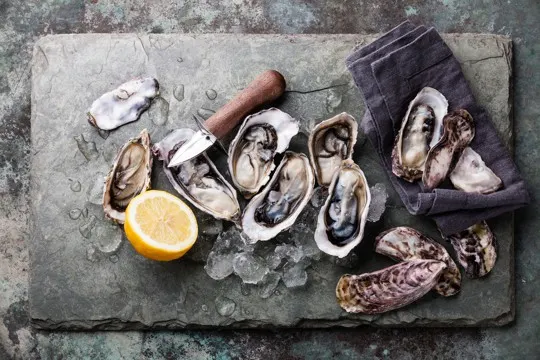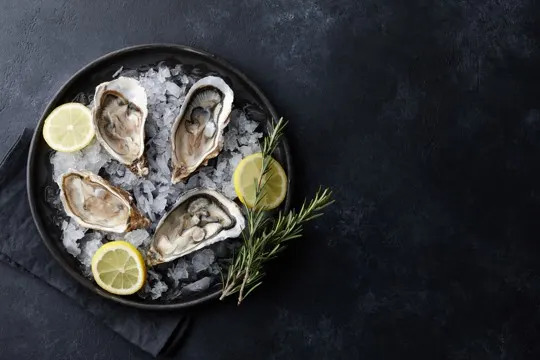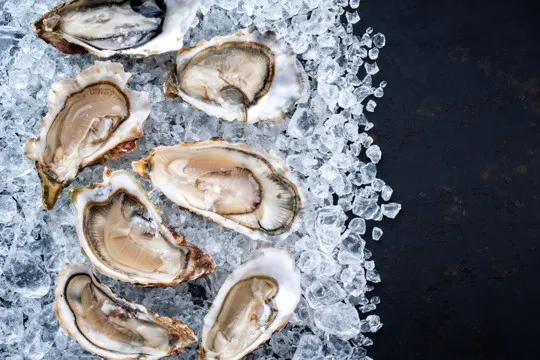Oysters are a delicacy that comes from the sea.
They have been around for centuries and can be found all over the world.
Oysters are most commonly eaten raw, but they can also be cooked or used in stews, soups, and chowders.
They have many health benefits too.
This article will explore how to store oysters, how long do fresh oysters last, and how to cook them so you can have an enjoyable experience eating this exquisite seafood dish.
What are Oysters?

Oysters are bivalve marine animals.
Oysters grow in the water, usually attached to rocks or another substrate.
They are filter feeders and sieve out their food from large volumes of water, including plankton, small fish that swim near them, and plants.
They generally live for three years before they reach maturity enough to produce eggs.
Females can release up to 20 million eggs every year through spawning events where males fertilize these eggs externally with sperm released into the surrounding waters.
Oysters are a good food source because they contain high amounts of zinc, iron, and calcium.
Also, oyster reefs provide natural coastal protection from waves due to the limestone in their shells, creating a barrier for crashing waves.
The oyster’s meat has a distinct taste that is often described as salty, briny, or metallic.
Oysters are available in many different sizes and species.
How to Eat Oysters?
Oysters are a great appetizer or an addition to other dishes.
Oysters can be eaten raw, fried, boiled, roasted in the shell with herbs and butter, smoked, or baked with lemon juice on top.
An oyster can be opened by shucking, which requires a sharp knife or oyster knife to cut the two shells apart and remove the slimy parts of an oyster’s interior before eating it whole.
Oysters are usually eaten raw with lemon juice squeezed over them because they have been known to cause nausea when not consumed in their entirety fresh from the sea.
Often, however, people prefer their oysters cooked instead of raw due to concerns about food poisoning.
There are several ways to cook oysters.
Boil the oysters in a pot of heavily salted water for three to four minutes until their shells open slightly.
Remove from heat and pour into an ice bath; let sit for five minutes before shucking them from the shell.
If you don’t have time or patience to wait around, then try this method: Put some heavy salt on top of your raw oyster meat, place under a broiler about six inches away from the flame until it bubbles up (usually two to three minutes).
Then remove and serve immediately with lemon juice squeezed over the top if desired.
Another way is to fry the oysters.
Heat some butter in a pan on medium heat, then add your raw or cooked oysters to the pan and fry for about two minutes.
Lastly, you can bake them with lemon juice if desired overtop of freshly ground salt and pepper.
Crushed garlic is also nice sometimes.
How to Store Fresh Oysters?

Seafood is a popular food these days.
But not all types of seafood are the same.
Some varieties require special storing methods to preserve their freshness and quality.
The oyster is one such variety that requires storage differently than most other fish, especially if you plan on consuming them raw.
Whether you love the taste of freshly shucked oysters or prefer them when they have been cooked in butter, it is crucial to know how best to store these tasty treats so that they maintain their maximum freshness.
One way is to put them in salty water and then cover them with ice packs or wet towels.
Another option is putting them into containers filled with dry ice – this will work best if you have access to dry ice near where you live.
You could also freeze the oysters before storing them by placing half-shells on a tray lined with a paper towel and covering each shell tightly with plastic wrap or foil.
How Long Do Oysters Last? Fresh & Cooked

Oysters are relatively short-lived, and they will die without oxygen.
Make sure to follow the mentioned tips to store oysters and keep them fresh properly.
For fresh oysters, whether they are raw or cooked, store them in the fridge.
The temperature between 40 and 45 degrees Fahrenheit is ideal for this type of oyster.
In general, you should be able to keep fresh oysters stored inside a refrigerator for up to two days before they spoil.
For frozen oysters, storage time increases dramatically because these types of oysters will last until thawing without spoiling if kept at a constant below the freezing point of 0°F (-18 °C).
This means that you can safely freeze your freshly caught oysters for up to one year and thaw them out later for a delicious oyster dinner.
You should store them in the fridge or freezer for cooked oysters if they are not served immediately.
Cooked oysters can be stored inside your refrigerator for four days before spoiling without any extra steps, but frozen ones have an increased storage time due to their lower spoilage risks.
Properly stored cooked oysters should last from one to three months in the freezer.
It’s best to consume them as soon as possible to avoid spoilage.
How to Tell if Oysters are Bad?

Oysters are unique seafood with a distinctive taste.
However, finding out if they’re bad is not the same as other seafood.
The most common way to spot spoil oysters is by looking for any of these signs:
A slimy texture, foul smell, and unusual coloring, including green or yellow spots, also indicates that it’s time to go in the trash.
In addition, you should always avoid eating oysters that have been sitting around unrefrigerated for too long because bacteria will start growing on them – so be sure to keep your fridge at 36 F (or below) at all times.
You can also tell if your oysters are bad by observing the following:
- If the shell is open, then it’s not good. It can also indicate that they’re dead and no longer fresh because live ones will close up if you touch them with a fork or spoon.
- The meat should have a tight, shiny surface without any wrinkles, as this means that they’ve been harvested too soon and might still clump together instead of being slippery to eat.
- There should always be an ammonia smell when you open them up, and if there’s no such thing as a good flavor, then they’re not worth your time.
Conclusion
Oysters are a great way to make sure you’re getting all the essential nutrients your body needs.
They can last up to 4 days in the fridge, so it won’t be an issue if you have leftovers from dinner one night and want to eat them again later on.
It is best not to keep oysters with other food items that will spoil quickly because they could go bad before their time.
Keep these tips in mind to make sure your oysters are as fresh and tasty for you as they can be.

How Long Do Oysters Last? Do Fresh & Cooked Oysters Go Bad?
Ingredients
- Oysters
- Air-tight containers or Ziplock bags
- Labels and markers
Instructions
- Read the guide thoroughly to learn how long it lasts.
- Label your container with the content and date and keep track of how much you’re using!
- Make sure to store in an airtight container in a cool, dark place (pantry or fridge).
- If frozen, thaw in the fridge before use. Always check for signs of spoilage before using.
